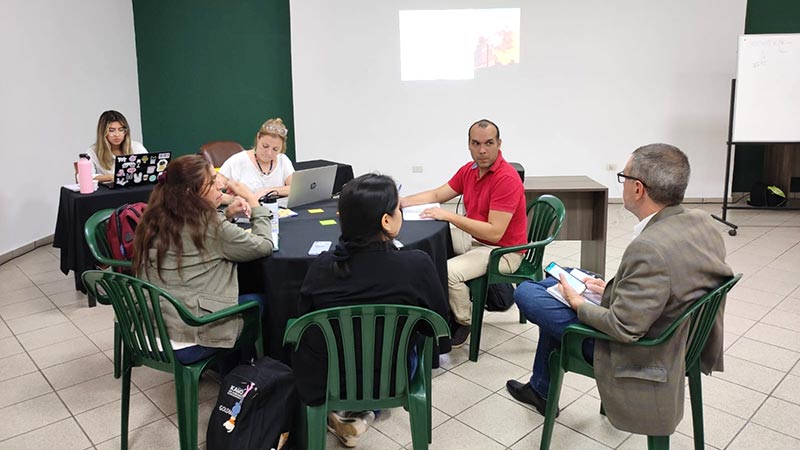El Ministerio del Ambiente y Desarrollo Sostenible (MADES), a través de la Dirección Nacional de Cambio Climático (DNCC), realizó un taller de presentación y validación de avances de la Evaluación de Necesidades Tecnológicas (ENT) y Plan de Acción Tecnológica (PAT).
En el mismo se avanzó en la priorización de tecnologías en el marco del programa de las Naciones Unidas, a través del Centro de Tecnologías Climáticas (CTCN) https://www.ctc-n.org/countries, que financia esta iniciativa, para hacer un diagnóstico de cuáles son las iniciativas más viables en el Paraguay, para alcanzar las metas y compromisos de la Comunicación de Adaptación y Contribución Nacionalmente Determinada (NDC por sus siglas en inglés).
El taller ha contado con trabajos grupales divididos por sectores priorizados: 1. Ecosistemas y biodiversidad / Recursos hídricos / Uso de la Tierra, Producción agropecuaria, forestal y seguridad alimentaria Cambio del Uso de la Tierra y Silvicultura (UTCUTS). 2. Energía y Transporte y 3. Un grupo compuesto por los representantes del sector Procesos industriales y uso de producto (IPPU), donde se han trabajado sobre las tecnologías priorizadas.
Como próximos pasos, el MADES, una vez consensuado estará reportando a la CMNUCC su Evaluación de Necesidades tecnológicas y su Plan de acción en tecnología climática, así también como parte de los productos del equipo consultor se desarrollarán dos notas conceptuales, para obtener financiamiento externo, en base al portafolio de tecnologías priorizados por las propias instituciones clave.
La apertura del taller estuvo a cargo del Director Nacional de Cambio Climático, Ing. Ulises Lovera y se contó con la participación de diversos sectores en la acción climática. Seguidamente, los responsables de la consultora internacional OIKO, Miguel Trillo y Verónika Macku, presentaron el contexto y los objetivos del trabajo que lleva más de un año, así también, las tecnologías priorizadas en los talleres virtuales con expertos.



















